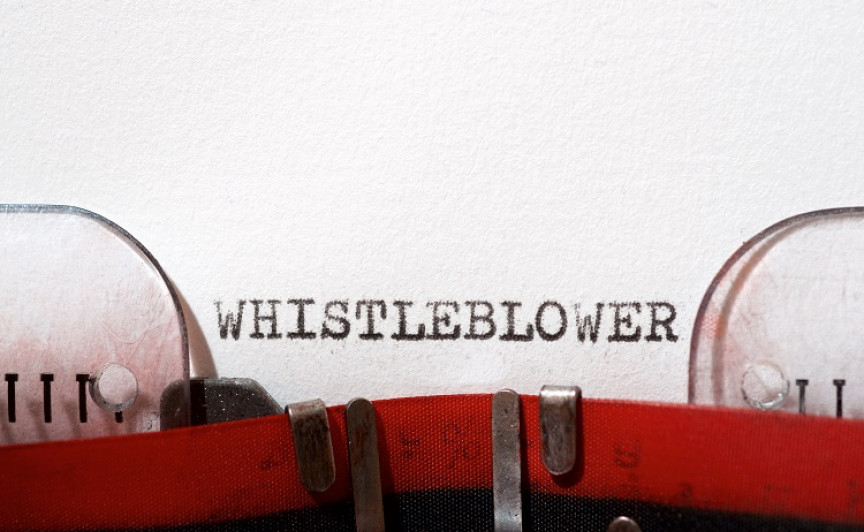Hinweisgeberschutzgesetz (Whistleblower Protection Act):
KERN CHERKEH assumes function of mandatory internal reporting office
Update 12.07.2023:
The Whistleblower Protection Act has been in force for 10 days. Employers with at least 50 employees are obliged to implement a whistleblower system ("internal reporting office"). Has your company already implemented this legal requirement?
Legal ombudsperson as "internal reporting office" according to the Whistleblower Protection Act - the advantages
The appointment of an external legal ombudsperson to receive whistleblowers' reports has become widespread in corporate practice and is also suitable for smaller organisational units. In this way, the requirements of the EU Whistleblower Directive and the Whistleblower Protection Act (prescribed "internal reporting office"; further requirements from §§ 15 - 18 HinSchG) are also effectively fulfilled - and regularly at a much lower cost than if a separate reporting office were set up within the company:
The neutral legal ombudsperson ("internal reporting office") receives reports from whistleblowers in confidence - anonymously if they wish.
Processing of anonymous reports (section 16 (1) HinSchG).
The legal ombudsperson checks the validity of the report received and maintains contact with the whistleblower in order to obtain further information on the facts of the case, if necessary.
Implementation of the tasks of the "internal reporting office" according to §§ 17, 18 HinSchG.
The legal ombudsperson evaluates incoming reports from a legal point of view and sends them to the company with recommendations for action (legal statement).
The legal ombudsperson ("internal reporting office") ensures compliance with the content and formal requirements of the Whistleblower Protection Act - including the deadlines specified therein.
Examples of the external lawyer ombudsperson from our practice:
Steuerberaterkammer Niedersachsen (Körperschaft d. öffentlichen Rechts)
Meldestelle Sportmanipulation (im Auftrag der Bundesrepublik Deutschland, vertreten durch das BMI)
Update 13.05.2023:
The Bundesrat approved the law in its meeting on 12.05.23:
https://www.bundesrat.de/SharedDocs/pm/2023/005.html
"After the Bundestag accepted the agreement proposal, the Bundesrat also approved the correspondingly amended law in its plenary session on 12 May 2023. The law was forwarded to the Federal President for signature and can then be promulgated in the Federal Law Gazette. According to the new provisions on entry into force provided for in the agreement, it is to enter into force for the most part one month after promulgation - possibly around mid-June 2023."
Update 20.12.2022:
The Hinweisgeberschutzgesetz (Whistleblower Protection Act) was passed by the Bundestag on 16.12.2022. All that remains now is the approval of the Bundesrat, the upper house of the German parliament, which is expected to take place in its first session of the new year on 10.02.2023. The companies and authorities concerned must ensure that the requirements in the law are implemented in good time. This includes, in particular, the establishment of a whistleblowing office: companies and organizations with 50 or more employees are required to set up secure internal whistleblowing systems. Companies with up to 249 employees have until December 17, 2023 to implement this, while companies with 250 or more employees are required to do so immediately after the law comes into force. The whistleblower system must make it possible to submit corresponding information to an internal reporting office verbally or in writing (both in person and anonymously).
The internal reporting office must confirm to the whistleblower that the tip has been submitted within seven days and provide information on the measures taken within three months. The tasks of the internal reporting office can be performed by independent and expert third parties, who guarantee the required confidentiality in this regard. Due to the legal complexity of the reports to be processed in accordance with the Whistleblower Protection Act, companies are advised to entrust the tasks of the internal reporting office to knowledgeable and experienced experts when dealing with confidential information and tips. KERN CHERKEH will provide you with competent support as your company's internal reporting office.
Protection of the company and the whistleblower through "internal reporting office"
The Whistleblower Directive stipulates that companies / employers with more than 249 employees (from 17.12.2023 even companies with at least 50 employees) must set up a whistleblower system.
According to the draft law, whistleblower protection will in future include information on all violations subject to criminal penalties and fines.
In accordance with the requirements of the EU Directive, the draft law provides for an "obligation to set up internal whistleblowing units" for companies/employers with generally at least 50 employees.
Both an "internal organizational unit" (e.g. compliance officer) and a third party (e.g. a law firm as "ombudsperson") can be entrusted as an "internal reporting office".
Such a whistleblower system is regularly implemented as part of the establishment or expansion of a comprehensive compliance management system in the organization. On the one hand, it functions as an important control element, but at the same time fulfills preventive purposes.
Since compliance primarily serves to avoid liability, effective information management, which regulates the procurement of information and the flow of information within the organization and vis-à-vis third parties, is one of the essential elements of a functioning compliance management system. A whistleblower system that guarantees confidentiality and, if necessary, anonymity opens up sources of information to the organization that would otherwise not be available to it (Egger, CCZ 2018, 128).
Also against the backdrop of recent case law, more and more companies are introducing whistleblower systems for compliance reasons, so that the executive cannot be accused of organizational culpability in this regard and in order to minimize reputational risks as well as risks of damages (also for the executive personally).
Do you have any questions regarding the design and implementation of an effective whistleblower system or the requirements arising from the EU Whistleblower Directive or the Hinweisgeberschutzgesetz (Whistleblower Protection Act) draft? Then please feel free to contact us.

